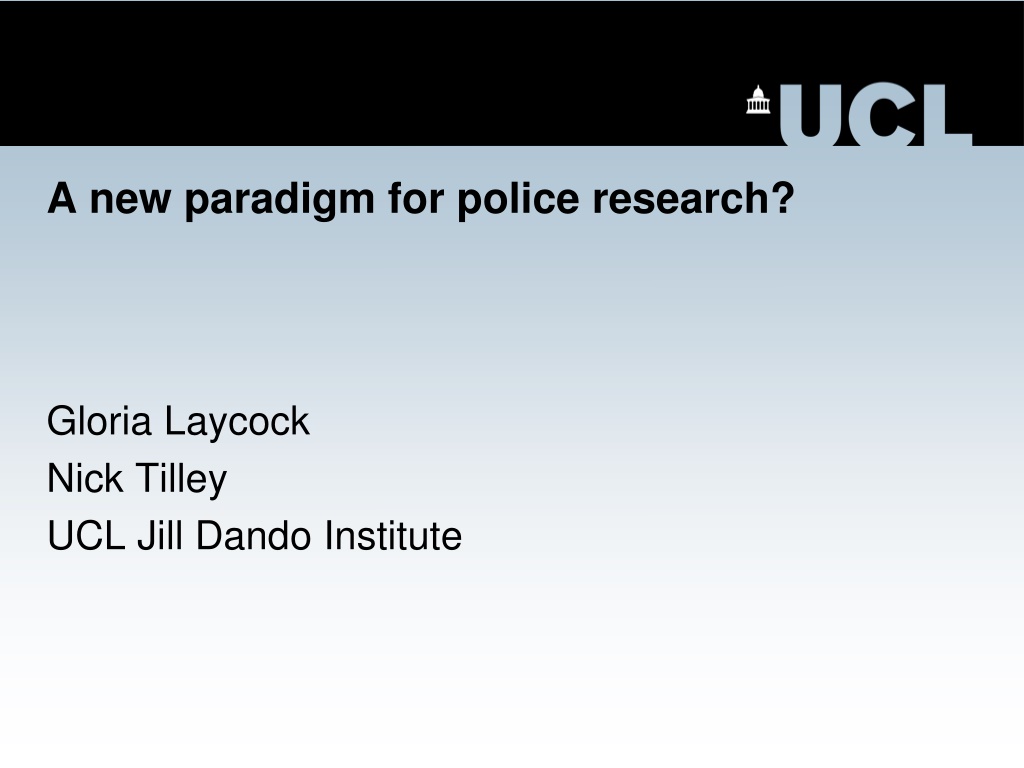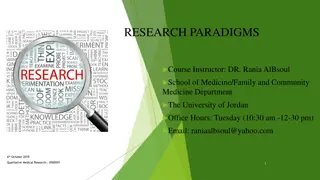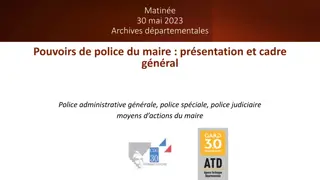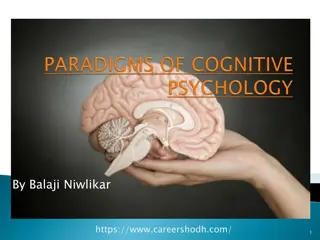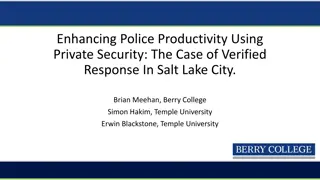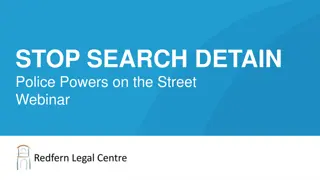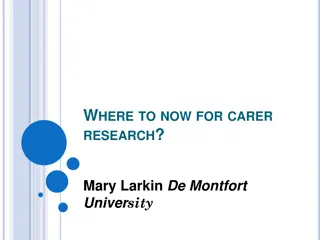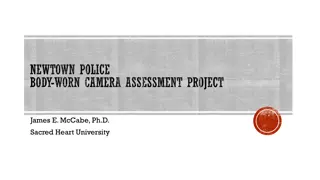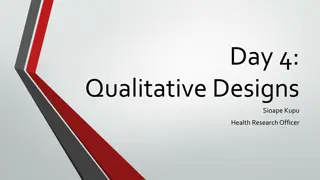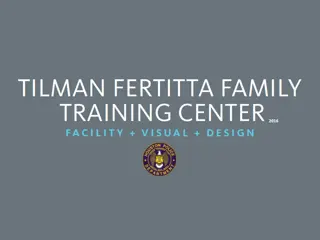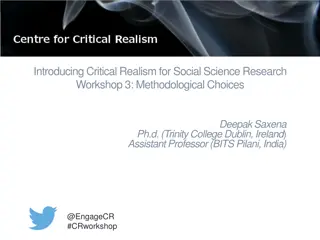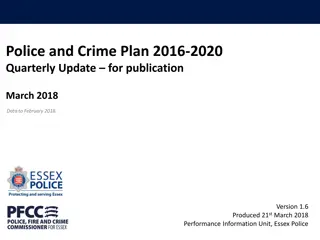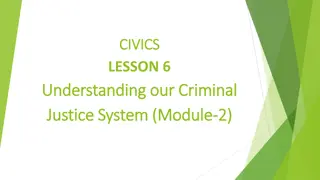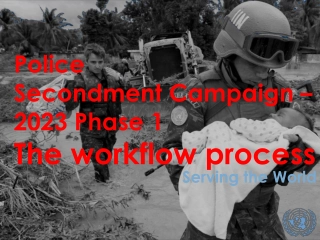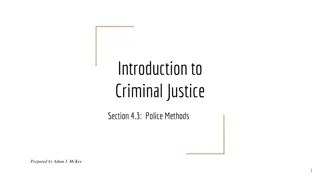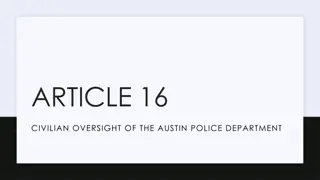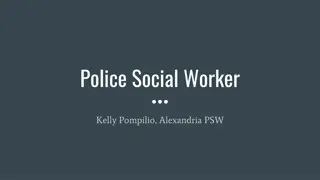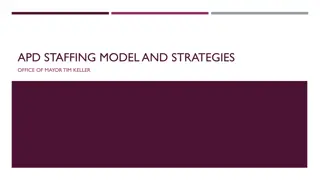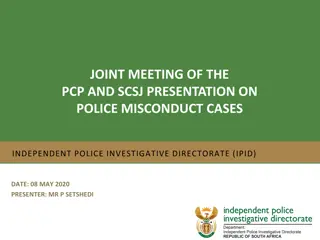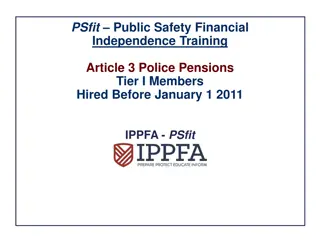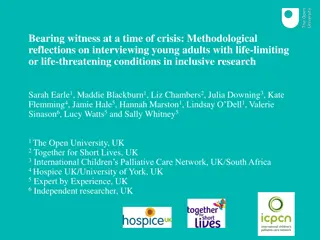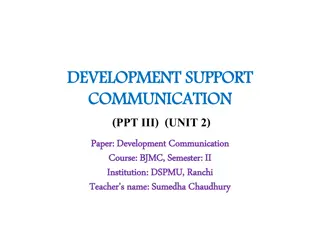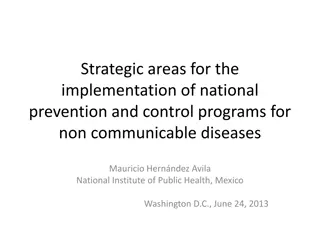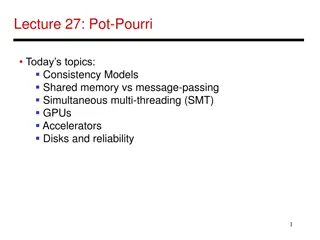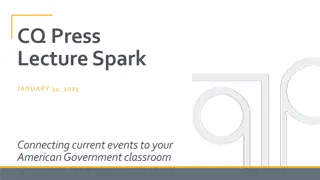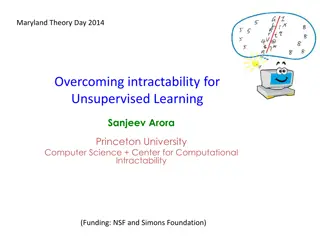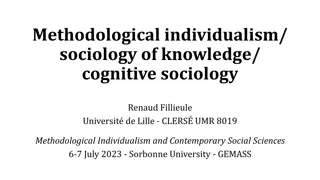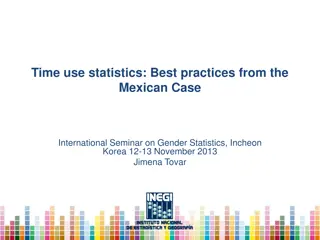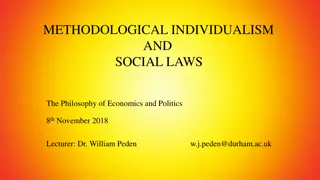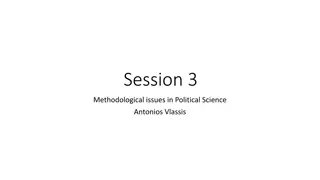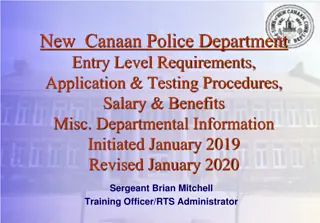New Paradigms in Police Research: Methodological Implications and Future Directions
Policing is evolving towards professionalism and evidence-based practices. However, there is a scarcity of research on effective strategies, highlighting the need for relevant, accessible evidence. The EMIE framework (Effects, Mechanisms, Moderators, Implementation, Economy) aids in assessing evidence quality for decision-making in crime prevention. Grading evidence using this framework helps identify the best crime reduction approaches. To inform policing effectively, researchers must consider robust methodologies.
- Police Research
- Evidence-based Practices
- Crime Prevention
- Methodological Implications
- EMIE Framework
Download Presentation

Please find below an Image/Link to download the presentation.
The content on the website is provided AS IS for your information and personal use only. It may not be sold, licensed, or shared on other websites without obtaining consent from the author. Download presentation by click this link. If you encounter any issues during the download, it is possible that the publisher has removed the file from their server.
E N D
Presentation Transcript
A new paradigm for police research? Gloria Laycock Nick Tilley UCL Jill Dando Institute
The argument: Policing is being professionalised Professionals use research evidence The policing research base is thin on what works Research funding is increasingly scarce Co-production is essential What are the methodological implications of this? What are the implications for future policing?
What decision makers need to know E = Effects (has it worked?) M = Mechanisms (how does it work?) M = Moderators (what conditions are needed for it to work?) I = Implementation (what has to be in place for it to work?) E = Economy (how much does it cost? Is it cost effective?) Johnson, S. D., Tilley, N. and Bowers, K. J. (2015) Introducing EMMIE: An evidence rating scale to encourage mixed-method crime prevention synthesis reviews , Journal of Experimental Criminology.
Grading the evidence base using EMMIE The task identify the best available evidence on approaches to reducing crime Best available evidence was taken to mean all systematic reviews with a crime reduction outcome 16,000 potentially eligible studies reduced to 82 reviews of crime prevention interventions To what extent does the available evidence speak to the elements of EMMIE? Bowers, K., Tompson, L. and Johnson, S.D. (2015). Implementing Information Science in Policing: Mapping the Evidence Base. Policing Journal
The police need to know: What works How Where How do I implement it How much might it costs To get this kind of information from research we need to think hard about our methodologies
Professions learn in different ways Styles of learning: Aviation Medicine Policing
The Problems Patient safety problems exist throughout the NHS NHS staff are not to blame Incorrect priorities do damage Warning signals abounded and were not heeded Responsibility is diffused and therefore not clearly owned Improvement requires a system of support Fear is toxic to both safety and improvement Taken from the report on improving the safety of patients in England by Don Berwick MD http://www.kingsfund.org.uk/audio-video/don-berwick-improving-safety-patients-england-presentation- slides
The Problems Victim safety problems exist throughout Policing Police staff are not to blame Incorrect priorities do damage Warning signals abound and are not heeded Responsibility is diffused and therefore not clearly owned Improvement requires a system of support Fear is toxic to both safety and improvement
The Solutions Recognise the need for wide systemic change Abandon blame as a tool Reassert the primacy of working with patients and carers to set and achieve health care goals Use quantitative targets with caution Recognise that transparency is essential Ensure responsibility for functions is clear and simple Give NHS staff career-long help to learn, master and apply modern methods for quality control, quality improvement and quality planning
The Solutions Recognise the need for wide systemic change Abandon blame as a tool Reassert the primacy of working with victims and communities to set and achieve policing goals Use quantitative targets with caution Recognise that transparency is essential Ensure responsibility for functions is clear and simple Give police staff career-long help to learn, master and apply modern methods for quality control, quality improvement and quality planning
Additional points Culture will trump rules, standards, and control strategies every single time A safer NHS will depend far more on major cultural change than on a new regulatory regime The NHS should become a learning organisation Transparency should be complete, timely, and unequivocal
Styles of learning: Aviation Engineering Theory based Medicine Drug companies using RCTs; surgeons trying and refining methods; medical physicists build and test, etc Theory based Policing Research model? No theory
How do engineers do it? They focus on solving problems Draw on formalised and tested theory Are creative Adapt designs in the light of experience and build on it Carry out experiments taking informed risks Learn from their mistakes
Learning organisations Aviation Private sector Incentives No political interference? Policing (as in having the power of arrest) Public sector Blame Risk Media Politics Leadership style Medicine Public/private Drugs companies Litigation Political interference?
And police/academic partnerships? Co-production is vital work together Money is tight so business as usual won t work Academics are also under pressure to demonstrate impact The police use tacit theory which needs to be made explicit and tested Academics should know how to do that Taking a scientific approach to evidence development requires testing of hypotheses the police are best place to develop those hypotheses working with communities
Implications for future policing Training Theory Styles of evaluation Liaison with communities Culture A learning organisation Risk Mistakes Leadership ambidextrous
Summary Professionalisation means using research evidence becoming a learning organisation There isn t much evidence on what works We can work together to generate it But we need to develop an appropriate research model for policing Engineering offers a relevant and pragmatic option There are cultural and training implications for researchers and police
Thank you Further reading: Matthew Syed (2016) Black Box Thinking Iain MacLeod (2016) Learning to solve problems available from http://info.iesis.org/papers/Eng-problem-solving.pdf
